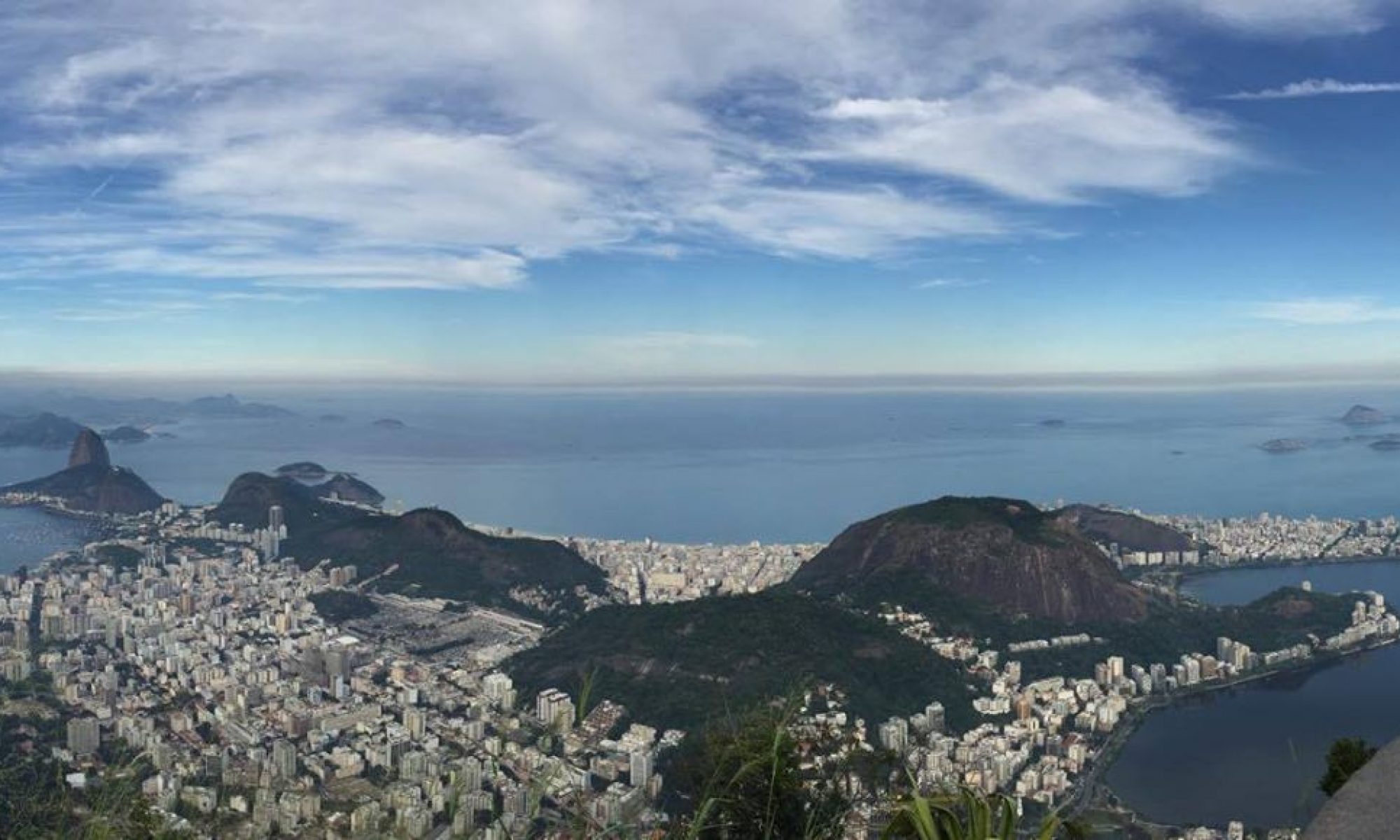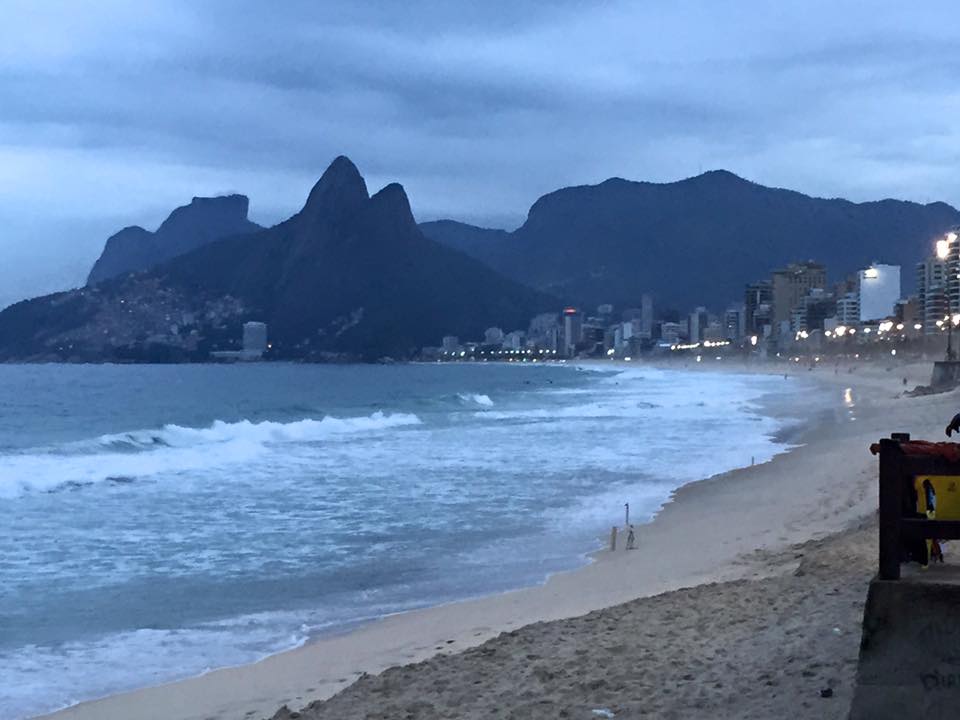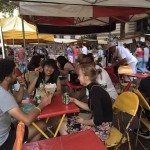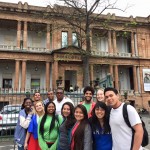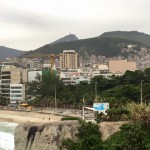June 21, 2015
By: Alejandro Heredia
When I first got to Rio de Janeiro, Brazil, I didn’t have many expectations of this program. I like to think that expectations restrict me, that if I expect something I will focus on what I want to happen, instead of what is actually happening. I only had two rules for myself: I wanted to stay open, and I wanted to remain sensitive, to listen to my emotions wherever I went.
In this post I don’t write specifically about Rio because my experiences there were superior to the other cities. Sao Paulo and Salvador have been incredibly rewarding in their own ways, yet I find that Rio forced me to face a lot of very difficult realities for people in Brazil and back home.
The first of these instances happened our first week in Rio. While we were at an indoor mall, a few of us in the group went to buy essentials, such as shampoo, toothpaste, or cookies and chocolates for those late night snacks. When I went to the front to pay for my things, I handed the cashier worker a 50 reais bill, and for the next five minutes we were stuck in a game of hand gestures and eye contact. It seemed to me that I had given him the wrong amount money, but he couldn’t tell me what was wrong in English, and I couldn’t ask him anything in Portuguese. Although eventually one of his co-workers came over to save the day, that instance of linguistic barrier was shocking for me. I felt disempowered in my inability to communicate, and most importantly, it reminded me of my mother, a Dominican immigrant who has lived in the United States for over fifteen years. Despite how long she’s lived in a mostly English-speaking country, Spanish still dominates her tongue, and she often needs help expressing herself effectively in English. In that moment, I hurt because I thought of all the instances she’s been stuck in similar situations, at a supermarket buying groceries or at a doctor’s appointment and I felt how isolating it must be, to navigate public spaces without words.
The second time I felt so emotionally pulled in Rio was at a lecture with a public school teacher. She spoke to us about how hard it is to be a teacher in Brazil, how the Public School systems don’t consider all the struggles that students must face outside of the classroom, especially students from a lower socio-economic class. What struck me the most was that she told us about how in a teacher’s strike, the police used physical force against their peaceful gathering. She said, “We’re just trying to have a better education. I felt like a criminal.” I was angry and sad that this phenomenal educator and the amazing work that she and other teachers do for underprivileged students was so undervalued by the Brazilian government.
Despite the hardships, the teacher expressed how valuable her teaching is to her, and told us that it is necessary to keep working in order change the Brazilian education system.
The third time happened in a community on the outskirts of Rio. We were on a walking tour of the community, and when we reached the very top, we met a boy of about ten years of age. Max was a brown boy with tight curls and friendly disposition. I think we all talked to him at one point, whether he was teaching us a handshake or trying to get us to buy more things at the community project’s gift store. Eventually, through one of our group member’s conversations with him, we found out that Max wanted to be a writer in order to tell the stories of his community.
I was struck by Max’s dreams because I was once a Dominican brown boy with curly hair, skin too close to ribs, and similar dreams that were beyond what was expected of my circumstances. Through a sequence of fortunate events and amazing people, I was able to immigrate to the United States, and a decade later, to attend a private college that provides resources for me to pursue my passion for writing. I felt angry when I thought of all the obstacles standing in his way, and the ways in which Brazilian society’s structure promises that most boys like Max would never make it out of their communities.
Instead of allowing anger to turn into pity for the boy, I decided to write to him. After we continued on our tour and left him behind, I ripped a small piece of paper from the journal I carried, and wrote, “I have faith that you will become an amazing writer one day. You are powerful!” I handed the note to one of our tour guides, who promised to deliver and translate the message for him later that day.
Today, I still don’t think that my message was nearly enough to change any of Max’s circumstances. I only wanted him to know that I believe in him, and that anything he might have to say about his experiences and community is worth hearing. I only wish I had gotten the opportunity to share my own story with him, so that he could see that someone with a similar background was able to make it to college, and still wants to pursue a career in storytelling and poetry.
I don’t know that my experiences in Rio would have been as rewarding if I wouldn’t have felt responsible to be open and emotionally invested. In addition to learning about the complexity of social inequality in Brazil, I think this trip has allowed me to focus in on what kind of work I want to do in the world. In addition to writing, I want to use the lessons I have learned from my mother’s experiences, a public school teacher, and an inspiring young boy to give back to the communities I come from.
